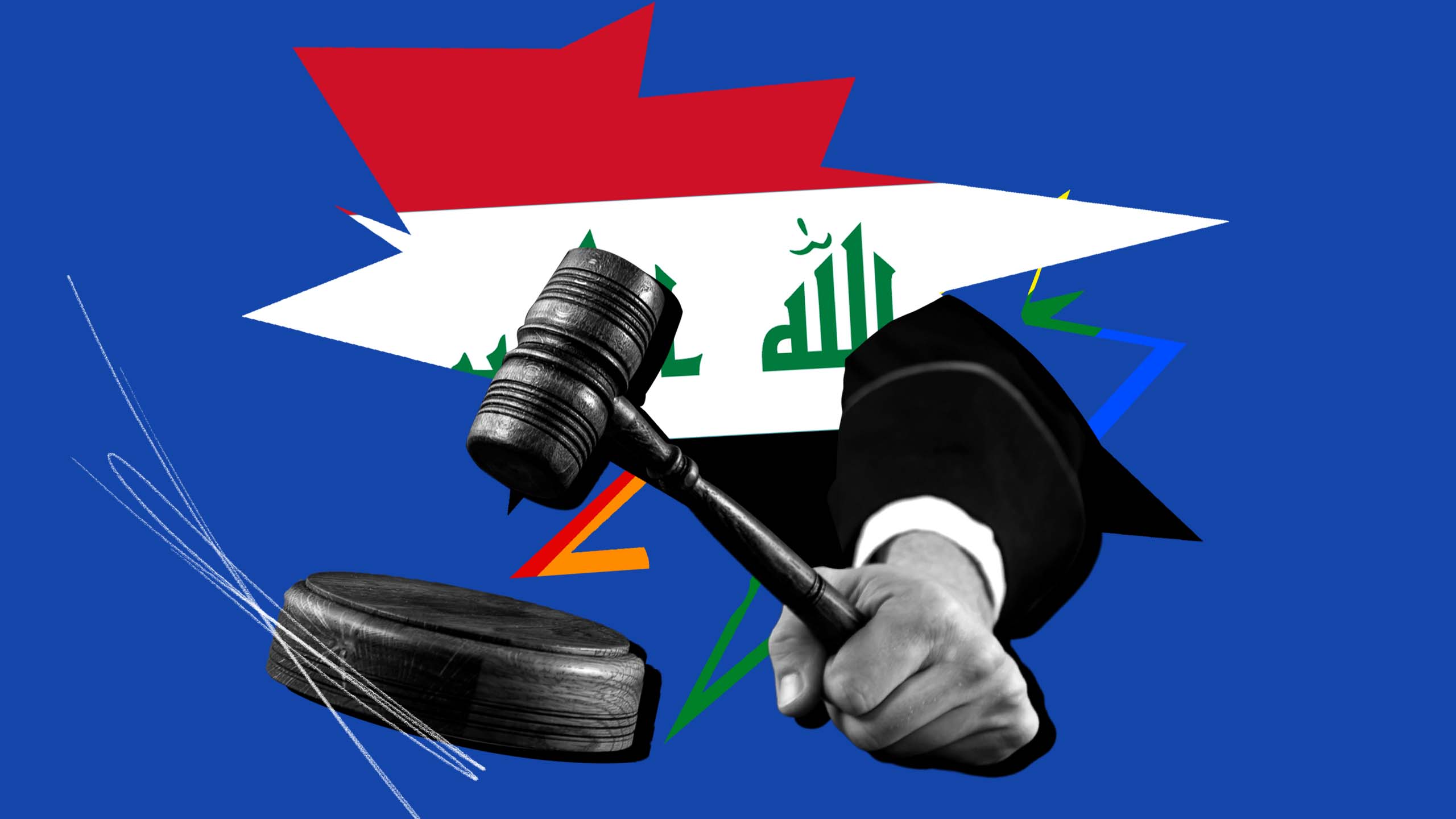Homosexuality has been legal in Iraq for almost 20 years, but some prominent leaders in the country want to change that.
Aref al-Hamami, an MP representing the State of Law coalition, confirmed last week that he intends to introduce a bill that would recriminalize acts of sexual intercourse between partners of the same sex. On July 8, al-Hamami told the Iraqi News Agency that members of the parliamentary legal committee have agreed to hear a proposal “to legislate a law prohibiting homosexuality in Iraq.”
“[The] legislation of such a law will be reinforced by legal provisions that prevent homosexuality and the perversions associated with it,” he said.
Al-Hamami did not outline what kinds of punishments would be mandated for same-sex intimacy or when the Council of Representatives—the formal name of Iraq’s parliament—might take up the bill. The future of the legislature is currently uncertain: 73 parliamentarians abruptly resigned in June after the lawmaking body failed to form a coalition government for nearly eight months, according to Al-Jazeera.
Among those who exited parliament was one of the bill’s most powerful potential allies: the influential Shia cleric and scholar Muqtada al-Sadr. In a May tweet, al-Sadr cited the monkeypox epidemic—which has disproportionately impacted the LGBTQ+ community on a global scale—as a pretense “for a repeal of laws upholding gay rights to protect humanity.” In a separate post, he called for a “special day against homosexuals and their reprehensible obscenity on earth and in heaven.”
But al-Sadr will now be forced to cheer on the proposed law from the sidelines. Although his parliamentary bloc, the Sadrist Movement, won the majority of seats in the October elections, he ordered members of the party to resign from the Council of Representatives earlier this year over the legislative gridlock.
Even without al-Sadr’s backing, LGBTQ+ activists worry the bill will find its champions. Amir Ashour, executive director of IraQueer, told the LGBTQ+ newspaper Washington Blade that supporters of the legislation “claim to have what they need to pass it.” Although Ashour said that he is “working behind the scenes to try and stop the law from passing,” he predicted it wouldn’t be “that long” until the bill becomes law.
“This will allow the Iraqi government to legally get away with murder and provide legal protection for armed groups and other criminals who continue to target LGBTQ+ citizens,” Ashour said in separate comments shared with the news publication Middle East Eye.
“Iraq hasn’t had an official law on the books criminalizing homosexuality since the U.S. invasion in 2003.”
The bill’s passage would be a major about-face from Iraq’s government, which hasn’t had an official law on the books criminalizing homosexuality since the U.S. invasion in 2003, despite outlawing all sex outside of marriage. Law enforcement officials have instead used vague penal code statutes forbidding rape and prostitution to target the LGBTQ+ community. Eleven LGBTQ+ people were arrested in June 2021 under laws barring “public indecency,” according to Human Rights Watch.
A 2022 report from the international human rights watchdog finds that LGBTQ+ Iraqis face widespread persecution throughout their lives, even without an explicit law on the books targeting them. A 86-page investigation detailed extrajudicial killings, harassment, violence and sexual assault experienced by 54 queer and trans Iraqis.
A 27-year-old gay man referred to as “Laith” was forced to watch as four men abducted his boyfriend, beat him for 20 minutes and then shot him. “I heard him scream and sob,” the interviewee recalled. “I wanted to help, but I was terrified.”
The abuse and discrimination experienced by LGBTQ+ Iraqis received worldwide attention earlier this year after the U.S. Consulate criticized the murder of a 23-year-old trans woman slain by her brother in an honour killing. Doski Azad worked as a makeup artist in the Masike neighbourhood of Duhok, a city located in the Kurdistan region near the Turkish border.
Human rights advocates hope the attempt to recriminalize homosexuality will shine a light on the challenges faced by LGBTQ+ Iraqis and encourage political leaders around the world to speak out.
“The Iraqi government is using their hatred for LGBTQ+ people to distract the public from their failure to form a government, provide basic services and hold perpetrators accountable for different human rights violations,” Ashour said in a statement to the British LGBTQ+ news outlet Gay Times. “The international community must put pressure on Iraq immediately. The lives of LGBTQ+ people and the future of the queer movement are on the line.”


 Why you can trust Xtra
Why you can trust Xtra


